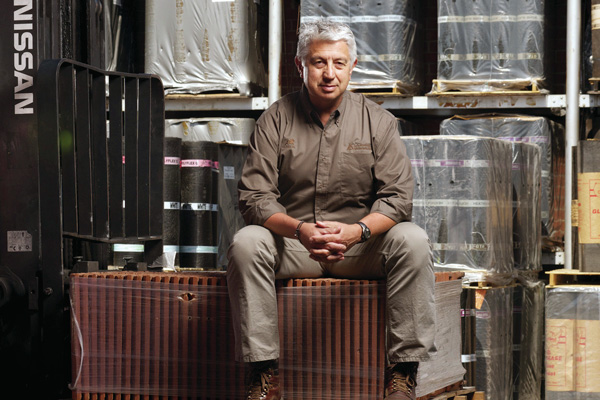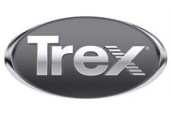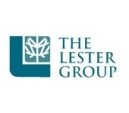Branch Managers Rule
There are advantages for independents to become part of larger distributors, says Hogan and other industry watchers. For one thing, bigger companies have economies of scale that give them purchasing and rebate leverage. Recently, that leverage has been a hedge against suppliers’ price increases that have ranged from 10% to 14%. (Three leading roofing suppliers—Owens Corning, CertainTeed and GAF—either did not return ProSales’ calls requesting comment, or declined to be interviewed about supply-chain consolidation.)
There are also “tremendous fleet management software programs out there,” which allow bigger companies to optimize their delivery systems, says John Calhoun, director of business development for exteriors and distribution for the marketing consultant Principia.
The trifecta for any independent owner who sells to a consolidator would be to retain a measure of operational control. And the big roofing distributors claim they favor decentralized management as a way of maintaining close ties to local contractors. Decentralization, though, is a matter of degree.
SRS fashions itself as “a family of independents,” says Tinker. It chooses not to migrate to a unified brand (it uses 19 different names in the field) “because we wanted to look and feel like an independent to contractors, but like a national distributor to suppliers.” And it gives its branch managers plenty of latitude “so they don’t feel like corporate pawns. Our corporate office works for the branches, not the other way around.”
Even ABC, whose size and market coverage might seem primed for centralization, relies on branch managers who operate with “a fully loaded P&L and working capital charges,” says Luck. “We want people who think and act as if they own this business. We believe in promoting from within, and even college grads have to work in a branch two or three years before entering our management program.” As the consolidators expand further, the practicality of decentralization will be tested, as some of the bigger guys may want to present “a consistent service platform” across each market, “that might come from training or information systems,” suggests Calhoun. McLaughlin of Allied says his company operates under a mix of centralized and decentralized practices governed by corporate guidelines. And Beacon’s CFO, Rick Welker, tells ProSales that he’s seeing a “trend towards centralized purchasing” emerging in the roofing sector.
RSG wants branch managers who have good relationships with local contractors, says Clay. And its screening process before hiring goes as high as its CEO, Mike Farrell. But in what may be a concession to the existing talent pool, RSG is less concerned about hiring managers with roofing experience than those who can bring an entrepreneurial edge to the job. “Our M.O. is not to pick off managers from ABC,” Clay says.
Another Blockbuster Deal Coming?
Clay says his company once considered writing an article that would advise independent roofing distributors about when they should contemplate selling their businesses. There’s little doubt that more consolidation is imminent. But is another super merger between any of the top five roofing distributors likely? Certainly that prospect has to be at least considered when investors’ quests for higher and quicker returns are influencing decisions.
SRS expects to be generating $2 billion in sales from 200 branches by 2017, and its growth will include 10 to 15 greenfield branches and five to seven acquisitions per year.
But Lutzker of Berkshire Partners says his company’s investment in SRS wasn’t predicated on that distributor making a bold acquisition. “We have confidence in the company’s current strategy of measured growth through smaller acquisitions and opening greenfield branches.”
While Tinker doesn’t entirely dismiss the possibility of a mega merger, he states that SRS prefers buying family owned businesses and expanding them. An illustration of that preference was evident in SRS’s recent purchase of the two-branch Gary-Hobart Roofing & Supply in Indiana, which finally happened after SRS’s management had offered to buy that company in 2008, 2010, and three times in 2012 before its owner yielded for tax purposes. Other consolidators sing the same song. “We’re looking for intelligent growth, but we can do whatever we need to without becoming a $10 billion company,” says Allied’s McLaughlin. He adds that being owned by Ireland’s CRH, Inc., has been “great” for Allied because “it makes us the largest building products company in North America.” He also says CRH isn’t pressuring Allied to pursue a major deal.
Beacon is more prone than other consolidators to acquire distributors with multiple branches. But Isabella told analysts “we’re not going to buy bad companies and overpay for them.” To that point, Ward of Nemeon observes that Beacon “is buying highly profitable businesses, not fixer uppers.”
And don’t expect RSG to suddenly start going after larger regional distributors like Gulfeagle any time soon, cautions Clay. It’s just as likely, he states, that RSG would enter new markets with a greenfield branch, into which its initial investment typically runs between $1 million and $2 million. (RSG typically leases its buildings.)
“We’re bullish on the roofing sector, if we can just get back to some historical averages,” says Clay. “It’s a great time to be in roofing, and we’re seeing some quality [private equity] companies coming into this business and placing bets on it.”
Clay says RSG is keeping its eye on ABC Supply, which it believes could start “turning up the heat” for growth after co-founder Diane Hendricks bought out minority shareholder Advent International in March. Luck, ABC’s chief executive, readily discloses that the distributor wants be a $7 billion business with more than 600 branches within the next five years. But he’s keeping his cards close to his vest about how it will reach that goal.
“We have a long-term strategic plan, and we’re executing it,” he says. “I don’t really have any worries; I’m very optimistic.”
–John Caulfield is senior editor of Builder magazine, a sister publication to PROSALES.



